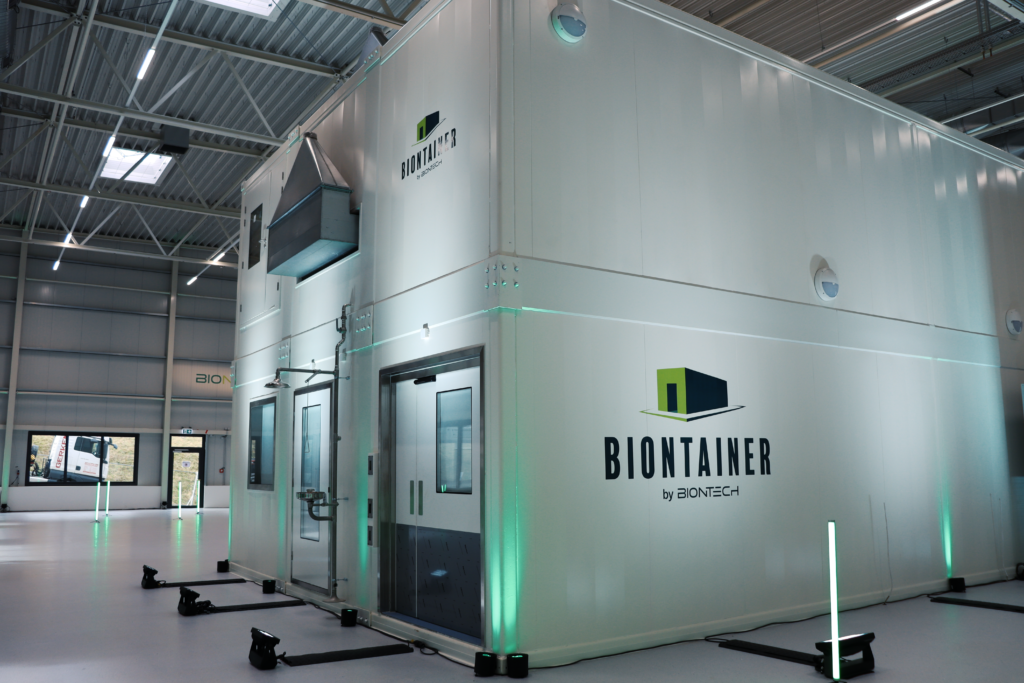
In a significant move aimed at enhancing access to mRNA vaccinations across Africa, BioNTech, the German pharmaceutical company, announced on Monday the successful completion of a pivotal phase in erecting its inaugural vaccine production center on the continent.
The company revealed the establishment of a production unit in Rwanda’s capital, Kigali, dedicated to manufacturing vaccines safeguarding against various diseases. Situated on 35,000 square meters of land, the innovative facility is constructed from repurposed shipping containers.
Partnered with the US pharmaceutical firm Pfizer in developing and distributing a COVID-19 vaccine, BioNTech outlined plans to finalize the factory’s construction by 2024, with operations commencing the subsequent year.
With a project cost totaling $150 million and groundbreaking initiated in June of the preceding year, this initiative represents a concerted effort involving multiple agencies to mitigate Africa’s heavy reliance on imported vaccines, a vulnerability starkly exposed during the COVID-19 crisis.
Rwandan President Paul Kagame, speaking at the inauguration attended by dignitaries including European Commission chief Ursula von der Leyen, challenged initial assumptions about the complexity of administering mRNA vaccines in Africa. He emphasized the necessity and feasibility of local vaccine production.
BioNTech foresees hiring approximately 100 local personnel upon the factory’s full operation, providing training in cutting-edge mRNA technology to facilitate the development of various new vaccines.
Amid the COVID-19 pandemic, mRNA technology underwent a critical trial, demonstrating its ability to swiftly create safe and effective vaccines compared to traditional methods that typically take years.
Rwanda is set to distribute the manufactured vaccines across the 55-member African Union bloc.
This endeavor marks Africa’s inaugural mRNA vaccine hub, following the launch of a similar project in Cape Town, South Africa, in April. Supported by the World Health Organization, the Cape Town initiative, led by South African companies Biovac, Afrigen, and the Medical Research Council, holds potential for scaling up vaccine production and expanding into other medical products, including treatments for diabetes, cancer, malaria, tuberculosis, and HIV.
